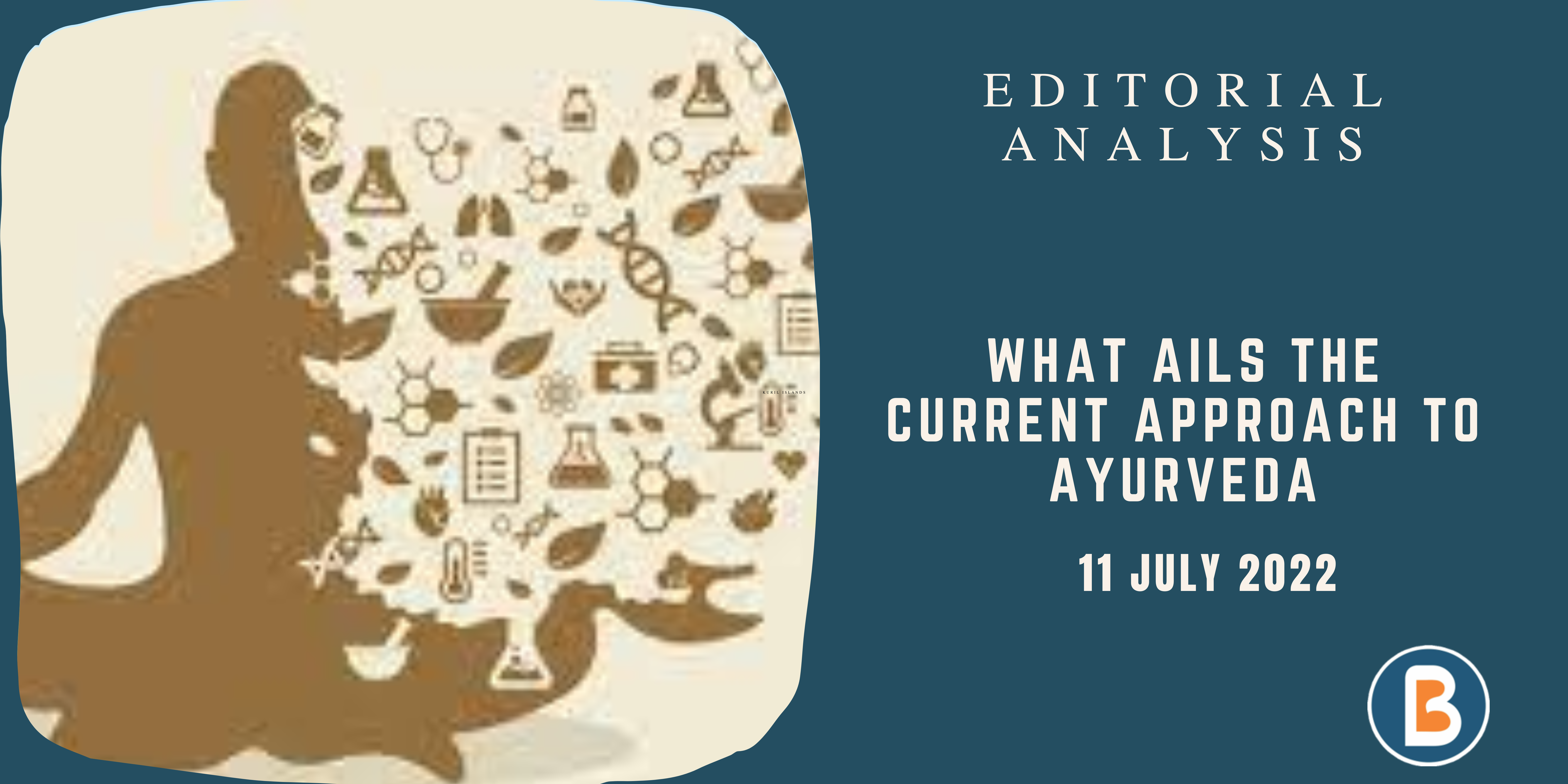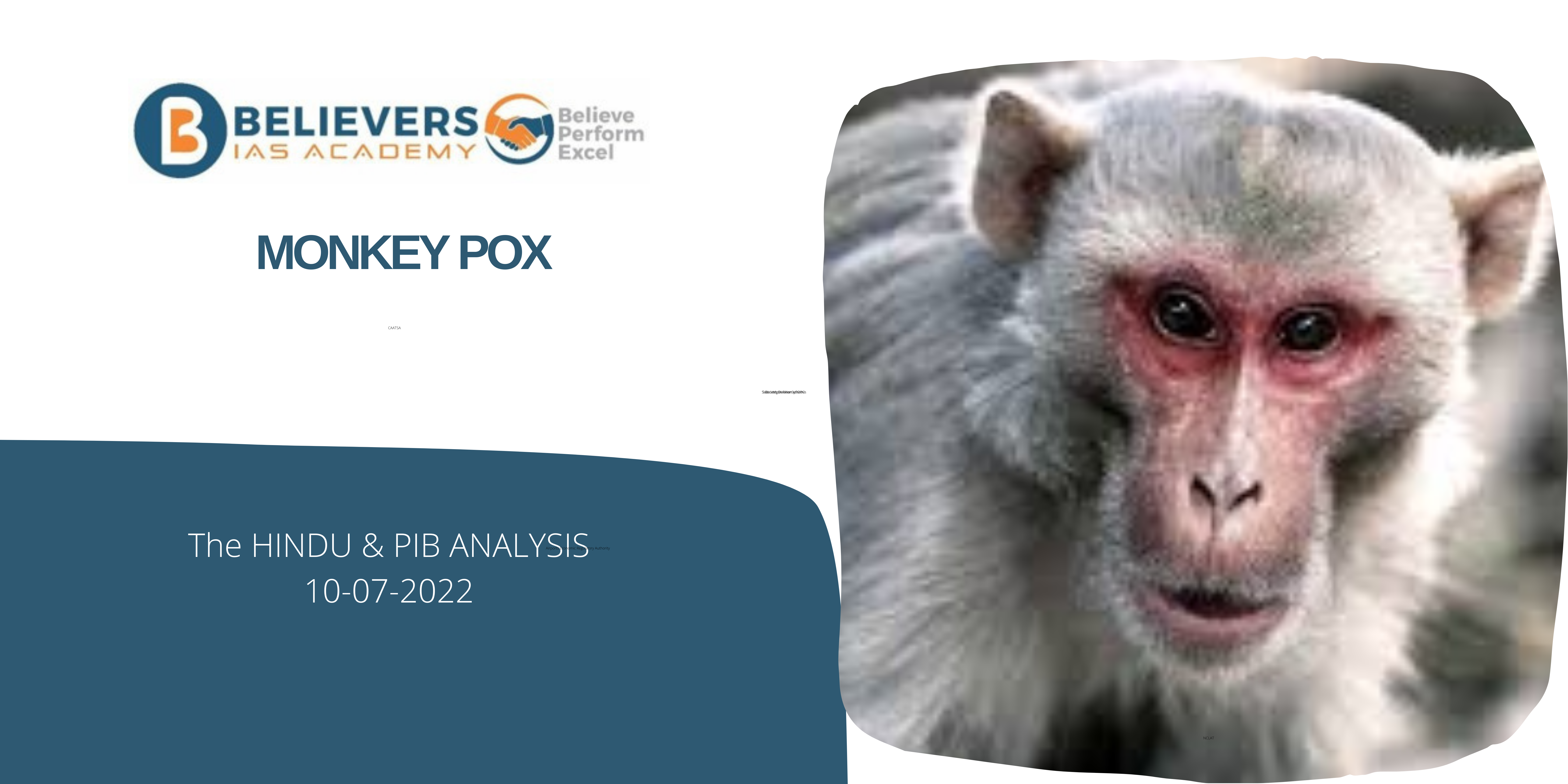What ails The Current Approach to Ayurveda
For Mains
Concerns
- Ayurveda’s ancient treatises cannot be expected to retain relevance in their entirety.
- There must be a dispassionate sifting through their contents to convert them for prudent practical use.
- Ayurveda has been in use for over three millennia and hence contain useful ideas along with obsolete ones.
- For instance, Ayurveda talks about exercise will help to create “A sense of ease, improved fitness, easy digestion, ideal body-weight, and handsomeness of bodily features”
- However, in other areas, especially in terms of physiology and pathology, some conjectures proposed by Ayurveda proved to be false under modern scientific knowledge.
- Teachers of Ayurveda physiology often have the unenviable job of constantly grappling with the difficulty of reconciling ancient speculations with established scientific facts.
- The research centres under the Ministry of AYUSH (Ayurveda, Yoga and naturopathy, Unani, Siddha, and Homeopathy) have not given enough attention in adapting Ayurvedic medical theories with modern scientific knowledge and their omissions have resulted in retaining the theory, lock, stock, and barrel.
- This has resulted in the entrenchment of obsolete knowledge in the current approach to the subject.
- The other factor that has been instrumental in preventing the renewal of Ayurveda is the widespread belief among its academics that ancient texts, by virtue of their being divined by sages in deep yogic states, retain timeless relevance.
- This flawed belief which in itself is contrary to the yukti-vyapashraya (reason-based) character of classical ayurveda, has kept a mystic veil over the theories of Ayurveda.
Suggestions
- Two reports; the Usman Committee (1923) and later, of the Chopra Committee (1948), suggested for greater integration with modern scientific knowledge to enhance the effectiveness of Ayurveda.
- Even scholars such as Debiprasad Chattopadhyaya and Priyavrat Sharma have tried to draw attention to the myth of epistemic superiority that has rendered Ayurveda texts non-revisable.
- Academics especially those from government-run AYUSH institutes need to learn to accept the limitations of ancient theories and adapt them to suit the modern world.
- Currently as a medical system, Ayurveda is valuable immensely for its observations, only marginally for its theories. For this to change, we must change the way we approach Ayurveda itself.
Source The Hindu




